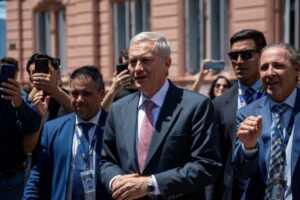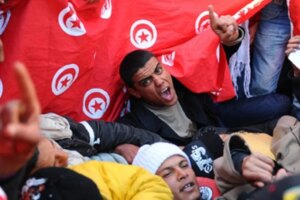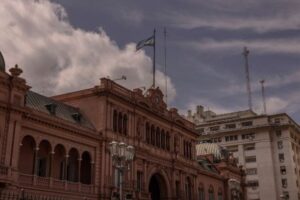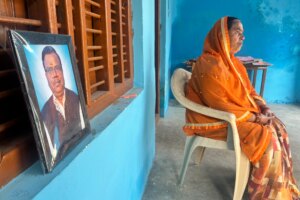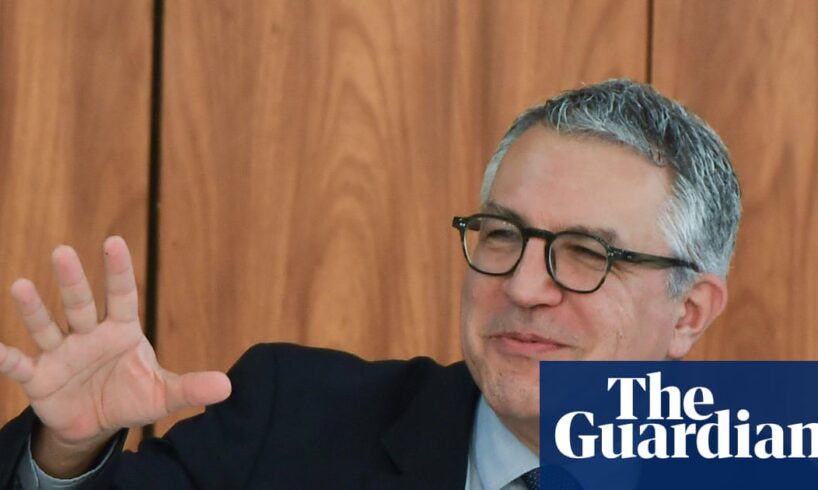
When Alexandre Padilha’s father most needed help, the United States took him in.
It was 1971, the height of Brazil’s brutal two-decade dictatorship, and Anivaldo Padilha, a young Methodist activist, had been forced to flee his homeland after spending 11 months in one of São Paulo’s most notorious torture centres.
Smuggled out of the country by a church group to avoid being killed, he made for Uruguay and Chile before finally escaping to the US. “There, he was able to live the freedom he wasn’t able to live in Brazil,” said his son, Alexandre Padilha, who was born after his father’s departure and only met him eight years later when the political climate in Brazil began to improve.
So more than five decades later, it came as a nasty surprise when Padilha’s 10-year-old daughter – Anivaldo’s granddaughter – became the youngest victim of Donald Trump’s pressure campaign against Brazilian authorities.
I’d like to understand what risk my 10-year-old daughter poses to the government of the United States
Last month, she and her mother were stripped of their US visas as the Trump administration targeted people tied to Brazil’s government and supreme court as part of unsuccessful efforts to help the ex-president Jair Bolsonaro escape justice for masterminding a 2022 coup attempt. On Thursday Bolsonaro was sentenced to 27 years in prison for the failed power grab.
“I’d like to understand what risk my 10-year-old daughter poses to the government of the United States … that means she cannot visit the US,” said Alexandre Padilha, who is Brazil’s health minister and a prominent ally of its leftwing president, Luiz Inácio Lula da Silva.
Speaking to the Guardian in Rio, Padilha denounced the decision to target his child as an “astonishing absurdity” and a “diplomatic abuse”.
Ahead of Bolsonaro’s trial, Trump slapped Magnitsky sanctions on Alexandre de Moraes, the supreme court judge presiding over the case; cancelled the visas of eight of Brazil’s 11 supreme court judges, including Moraes; and ordered 50% tariffs on Brazilian goods.
After Bolsonaro’s conviction on Thursday the US secretary of state, Marco Rubio, hinted the US would further punish Brazil and “respond accordingly to this witch-hunt”.
Last month Rubio, announced that the visas of two government officials involved in creating Brazil’s Mais Médicos (More Doctors) health program, had been revoked, purportedly because of the scheme’s use of Cuban doctors. Padilha believed he had avoided losing his visa because it had already expired. He has yet to be issued with a visa for next week’s UN general assembly in New York.
Rubio claimed the officials were targeted because the Brazilian program – which has brought healthcare to remote areas – had helped enrich “the corrupt Cuban regime and [deprive] the Cuban people of essential medical care”. But Padilha, who said Cuban medics were no longer involved in a program he credited with saving millions of lives, believed that was a pretext.
In fact, the minister claimed Trump’s decision to target people linked to the program – including, indirectly, his daughter – was a reflection of the US president’s two-pronged assault on healthcare and democracy.
Trump’s attempt to coerce Lula into “intervening” in Brazil’s independent judiciary over Bolsonaro’s judgment was an anti-democratic affront. “None of this will intimidate us,” Padilha vowed. “[We will not] give up on defending our democracy.”
Meanwhile, the minister believed Trump’s targeting of the Brazilian healthcare project was a reflection of a politician who had launched a relentless assault on public health and science – in the US and around the world – since regaining power in January.
Attacking global health means attacking the health of your own people too.
“From the start of the Trump administration, he’s launched a succession of attacks on health in the US and global health,” Padilha said, noting how Trump had cut funding for the production of mRNA vaccines, sacked the head of the Centers for Disease Control and Prevention (CDC), and purged the leaders of the National Institutes of Health (NIH).
“He [Trump] has persecuted researchers, cut funding for universities … and [vowed to] withdraw from the World Health Organization (WHO).” “Ninety per cent of the WHO’s operations in Africa were paid for with the US’s voluntary donation – and this was cut,” said Padilha, an infectious diseases specialist who wore a white coat celebrating Brazil’s national health service, the SUS.
“This will affect Africa, which is very serious in itself, but it will also affect the whole world … Attacking global health means attacking the health of your own people too.
“That’s why I say we see these measures [against my family] as an astonishing absurdity but also as having a certain consistency with the other astonishing absurdities the president of the US has committed.”
Padilha said his father was perplexed by the “unthinkable” US decision to punish his grandchild. “I never imagined the country that offered me shelter, that saved my life … treating my granddaughter so outrageously,” he quoted the 85-year-old as saying.
But the minister hoped Trump’s anti-healthcare campaign could prove an opportunity for his country. While the US health secretary, Robert F Kennedy Jr, has cut investments in mRNA vaccines, the Brazilian government was pumping tens of millions of dollars into healthcare institutes, Fiocruz and Butantan, which are pushing ahead with the development of such life-saving shots.
“Come to Brazil,” was Padilha’s message to US-based researchers and biomedical firms who were under the cosh because of the “instability” under Trump.
“I like to joke that Brazil has managed to bring an Italian manager [Carlo Ancelotti] to coach the Brazilian football team. Now we’re attracting numerous researchers to come and do their research in Brazil,” said Padilha, who said authorities had already detected an influx of researchers from the US.
“Trump has torn up contracts with American companies … and we’re going to attract them to invest here in Brazil.”
A spokesperson for the US embassy in Brasília declined to comment on why the visas of Padilha’s daughter and wife had been revoked.
